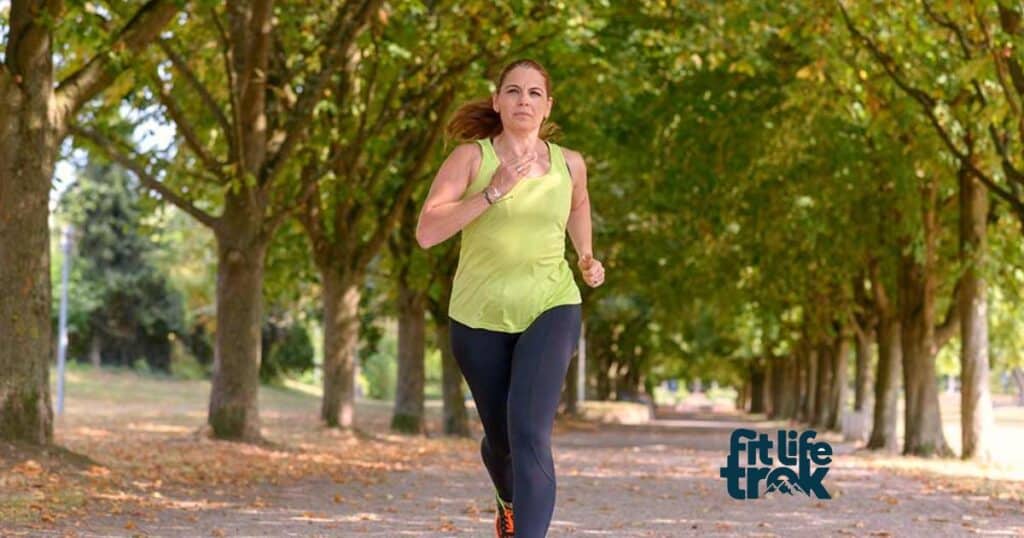Walking 4km is a common distance for exercise or commuting. The time it takes depends on factors like walking speed and terrain. Generally, it takes about 40 to 60 minutes for an average person to walk 4km.
Knowing the time can help you plan your day better. It’s also useful for setting fitness goals and tracking your progress.
Calculating the average time to walk 4km is simple. Most people walk at a speed of 4-5km per hour. Dividing 4km by this speed gives you the estimated time. Factors like age, fitness level, and route can affect your walking time.
How Long Does It Take to Walk 4Km?

On average, it takes about 40 to 60 minutes to walk 4km. But here’s the kicker. your actual time to walk 4km can vary quite a bit. It all depends on your walking speed, age, fitness level, and even the terrain you’re tackling.
Your environment plays a big role in how quickly you can cover those 4 kilometers. And let’s not forget about your personal pace. Are you aiming for a leisurely walk or pushing for a brisk pace? These factors all toss their hats into the ring when it comes to your walking time.
Read More About: How Many Steps Are in 4 Kilometers? (Expert’s Opinion)
Average time to walk 4km for men and women
When it comes to walking 4 kilometers, men and women often show slight differences in their average time. But don’t get too hung up on gender – individual fitness levels and age play a much bigger role in determining your walking speed.
Generally speaking, men might clock in a tad faster, but this isn’t set in stone. The key is to focus on your personal progress rather than comparing yourself to others. After all, the health benefits of walking are the same, regardless of how quickly you’re moving those feet!
Average time to walk 4km for men by age
As we age, our walking speed tends to change. Here’s a rough guide for men:
| Age Group | Average Minutes to Walk 4KM |
| 20-29 years | 40 to 45 minutes |
| 30-39 years | 40 to 45 minutes |
| 40-49 years | 48 to 52 minutes |
| 50-59 years | 50 to 55 minutes |
| 60+ years | 55 to 65 minutes |
Remember, these are just averages. Your personal time to walk 4km might be faster or slower, and that’s perfectly okay.
Average Time to Walk 4Km for Women by Age

For women, the average time to walk 4 kilometers also varies with age. Check out this breakdown:
| Age Group | Average Minutes to Walk 4KM |
| 20-29 years | 45 to 48 minutes |
| 30-39 years | 48 to 50 minutes |
| 40-49 years | 50 to 55 minutes |
| 50-59 years | 55 to 60 minutes |
| 60+ years | 60 to 70 minutes |
Again, these are just ballpark figures. Your personal walking time might differ, and that’s totally fine. The important thing is that you’re out there, moving and reaping the health benefits of everyday walking.
Why is walking good for health?

Walking is like a magic pill for your health, minus the actual pill! This simple physical activity packs a powerful punch when it comes to boosting your overall well-being. From head to toe, walking 4 kilometers daily can transform your body and mind in ways you might not expect.
Let’s break down some of the awesome benefits you can look forward to when you lace up those sneakers and hit the pavement. Trust me, by the time we’re done, you’ll be itching to start your own walking routine!
Help in Losing Weight:
Want to shed a few pounds? Walking’s got your back! A brisk pace over 4km can torch around 200-300 calories, depending on your weight and speed. Do this daily, and you’re well on your way to creating that calorie deficit needed for weight loss.
Reduces the Risk of Dangerous Diseases:
Walking is like a shield against many chronic illnesses. Regular walks can slash your risk of heart disease, type 2 diabetes, and even some cancers. It’s a simple way to invest in your long-term health.
Boost Immunity:
Want to give your immune system a leg up? Regular walking can help! It increases the number of immune cells in your body, helping you fight off those pesky colds and flu.
Improves Heart Health
Your ticker will thank you for those daily walks. Walking 4 kilometers can lower your blood pressure, reduce bad cholesterol, and boost good cholesterol. It’s like a tune-up for your heart!
Improves Brain Health
Walking isn’t just good for your body – it’s brain food too! Regular walks can improve memory, cognitive function, and even reduce the risk of dementia. It’s like a workout for your noggin!
Encourages Creative Thinking
Stuck on a problem? A walk might be just what you need. Many people find that walking helps clear their mind and boosts creativity. Who knows, your next big idea might come to you mid-stride!
Strengthens Bones and Muscles
Walking is a weight-bearing exercise, which means it’s great for your bones and muscles. It can help prevent osteoporosis and keep you strong and stable as you age.
Improves Mood and Mental Health
Feeling blue? Put on those walking shoes! Walking releases endorphins – those feel-good chemicals in your brain. It’s a natural mood booster and stress-buster.
Increases Energy
Paradoxically, expending energy through walking can actually give you more pep in your step. Regular walkers often report feeling more energized throughout the day.
Is walking 4 km in 40 minutes good?

Absolutely! Walking 4km in 40 minutes is considered a brisk pace and is excellent for your health. This speed, about 6 km/hour, gets your heart pumping and can significantly improve your cardiovascular health.
At this pace, you’re not just strolling – you’re giving your body a real workout. It’s fast enough to count as moderate-intensity exercise, which is what health experts recommend for optimal fitness benefits. Plus, it’s a pace that many people find challenging yet achievable, making it perfect for boosting your fitness levels over time.
Is Walking 4km in an Hour Fast?
While not as speedy as the 40-minute mark, walking 4km in an hour is still a solid pace. It’s about 4 km/hour, which falls into the category of moderate walking. This speed is great for beginners or those who prefer a more relaxed walking routine.
Don’t underestimate the power of this pace! Even at this speed, you’re still burning calories, improving your health, and building stamina. It’s a sustainable pace that many people can maintain for longer distances, making it perfect for extended walks or when you’re just starting your fitness journey.
Read More About: How many steps are in 2 km? Walking Distance Conversion Made Easy
How many steps is a 4km walk?
Ever wondered how many steps you’re clocking during your 4km jaunt? On average, walking 4 kilometers translates to about 5,000 to 5,500 steps. But here’s the kicker – your actual step count can vary based on your stride length.
Check out this handy table to see how your stride length affects your step count:
| Stride Length | Estimated Steps for 4 Km |
| 0.5 meters | 8,000 steps |
| 0.6 meters | 6,667 steps |
| 0.7 meters | 5,714 steps |
| 0.8 meters | 5,000 steps |
| 0.9 meters | 4,444 steps |
| 1.0 meter | 4,000 steps |
Remember, these are just estimates. Your actual steps for 4 km might differ slightly. The important thing is that you’re moving and reaping those awesome health benefits!
How many calories do you burn walking 4 km?

Curious about the calorie-burning power of your 4km walk? You’re in for a treat! The number of calories you torch depends on factors like your weight, walking speed, and the terrain. But on average, a 4km walk at a moderate pace can burn between 200 to 300 calories.
Here’s a rough breakdown based on body weight:
| Body Weight | Calories Burned (Approx.) |
| 60 kg (132 lbs) | 200 calories |
| 70 kg (154 lbs) | 233 calories |
| 80 kg (176 lbs) | 267 calories |
| 90 kg (198 lbs) | 300 calories |
| 100 kg (220 lbs) | 333 calories |
Remember, these are estimates for a flat terrain. If you’re tackling hills or picking up the pace, you’ll burn even more!
Can you lose weight by walking 4km every day?
You bet! Walking 4 kilometers daily can be a fantastic tool for weight loss. It’s all about creating a calorie deficit – burning more calories than you consume. And a daily 4km walk can help you do just that.
Let’s crunch some numbers:
| Factor | Detail |
| Calories Burned per Walk | 200 to 330 calories |
| Days of Walking per Week | 7 days |
| Calorie Burn per Week | 1,400 to 2,310 calories |
| Calorie Burn per Month | 5,600 to 9,240 calories |
| Potential Weight Loss per Month | 0.8 to 1.3 kg (or 1.76 to 2.86 lbs) |
Remember, these are rough estimates. Your actual results may vary based on factors like your diet, metabolism, and overall activity level. But one thing’s for sure – everyday walking can definitely help you shed those extra pounds!
Is daily walking 4 km enough for exercise?
Walking 4km every day is a fantastic start to a healthier lifestyle. It ticks many boxes when it comes to recommended physical activity levels. Health organizations typically suggest adults aim for at least 150 minutes of moderate-intensity exercise per week. A daily 4km walk at a decent pace easily meets this target.
However, whether it’s “enough” depends on your personal fitness goals. For general health and maintaining weight, it’s often sufficient. But if you’re looking to significantly boost your fitness or lose a lot of weight, you might want to gradually increase your distance or intensity. Remember, any amount of walking is better than none!
How to Plan a Walking Routine?

Creating a solid walking routine is key to reaping the full benefits of your 4km walks. It’s not just about lacing up your shoes and heading out – a well-planned routine can help you stay motivated, track your progress, and achieve your health goals.
Here are some tips to help you craft the perfect walking plan:
Set Your Goals
Start by defining what you want to achieve. Do you want to improve your cardiovascular health, lose weight, or simply enjoy some fresh air? Clear goals will keep you motivated.
Choose a Walking Route
Pick a route that’s safe and enjoyable. It could be around your neighborhood, in a local park, or even on a treadmill. Variety can keep things interesting, so don’t be afraid to mix it up!
Warm-Up
Always start with a 5-minute warm-up. This could be gentle stretching or a slower walk to get your muscles ready for action.
Start Slow
If you’re new to walking, begin with a comfortable pace and distance. Gradually increase your speed and distance as your fitness improves.
Include Intervals
To boost your fitness, try incorporating short bursts of faster walking. For example, walk at a brisk pace for 1 minute, then slow down for 2 minutes. Repeat this throughout your walk.
Cool Down
End your walk with a 5-minute cool-down period. Slow your pace and do some light stretching to help prevent muscle soreness.
Establish a Schedule
Consistency is key. Try to walk at the same time each day to establish a habit. Whether it’s morning, afternoon, or evening, find a time that works for you.
Track Your Progress
Keep a log of your walks. Note your time, distance, and how you felt. Seeing your progress can be a great motivator!
Listen to Your Body
Pay attention to how you feel during and after your walks. If you’re experiencing pain or excessive fatigue, it might be time to take a rest day or consult a healthcare professional.
Average Time to Walk 4km Summary
We’ve covered a lot of ground (pun intended!) in this article. Let’s recap the key points about walking 4 kilometers:
- The average time to walk 4km is between 40 to 60 minutes, depending on your pace and fitness level.
- Walking speed can vary based on age, gender, and individual factors.
- A 4km walk can burn around 200-300 calories, depending on your weight and speed.
- Regular 4km walks offer numerous health benefits, including weight management, improved heart health, better mental well-being, and reduced risk of chronic diseases.
- Creating a consistent walking routine can help you make the most of your 4km walks and achieve your fitness goals.
Remember, the most important thing is to get moving! Whether you’re a speed walker or prefer a leisurely stroll, everyday walking can significantly improve your health and quality of life.
Safety Tips
While walking is generally safe, it’s important to take some precautions to ensure your 4km journey is as enjoyable as it is beneficial. Here are some key safety tips to keep in mind:
- Stay visible: Wear bright or reflective clothing, especially if you’re walking early in the morning or late in the evening.
- Choose safe routes: Stick to well-lit areas and sidewalks when possible. If you must walk on the road, face oncoming traffic.
- Be aware of your surroundings: Limit distractions like headphones or mobile devices, especially in busy areas.
- Wear proper footwear: Invest in comfortable, supportive walking shoes to prevent injuries.
- Stay hydrated: Bring water with you, especially on longer walks or in warm weather.
- Tell someone your route: If you’re walking alone, let a friend or family member know your planned route and expected return time.
By following these tips, you can ensure your daily exercise routine is safe and enjoyable.
Frequently Asked Questions
How long does it take to walk 4 kilometers?
On average, it takes about 40 to 60 minutes to walk 4km. However, this can vary based on your walking speed, fitness level, and the terrain.
How can I calculate how long it will take me to walk 4 kilometers?
To calculate your personal time to walk 4km, you can use this simple formula: Time = Distance / Speed. If you know your average walking speed, divide 4 by that number to get your estimated time in hours.
What factors can affect the time it takes to walk 4 kilometers?
Several factors can influence your 4km walking time, including your age, fitness level, terrain (flat vs. hilly), weather conditions, and whether you’re walking at a leisurely or brisk pace.
Can people walk 4 kilometers in a shorter amount of time?
A: Yes, some people can walk 4km in less than 40 minutes. This usually requires a brisk pace or even a light jog. With regular practice and improved fitness, many people can reduce their walking time.
How long should it take to walk 4 kilometers for someone with an average walking pace?
For someone with an average walking pace of about 5 km/hour, it should take approximately 48 minutes to walk 4 kilometers.
Is walking a good exercise for maintaining fitness?
Absolutely! Walking is an excellent low-impact exercise for maintaining fitness and overall health. It improves cardiovascular health, helps with weight management, reduces stress, and offers numerous other health benefits.
Conclusion
The time it takes to walk 4 kilometers varies based on factors such as walking speed, fitness level, terrain, and age. On average, most people walk at a speed of about 5 kilometers per hour, meaning it would take roughly 45-50 minutes to cover 4 kilometers at a moderate pace. However, faster walkers could complete the distance in about 35-40 minutes, while slower walkers may take closer to an hour. By considering these variables, individuals can estimate how long it will take them personally to walk 4 kilometers and adjust their pace accordingly.

